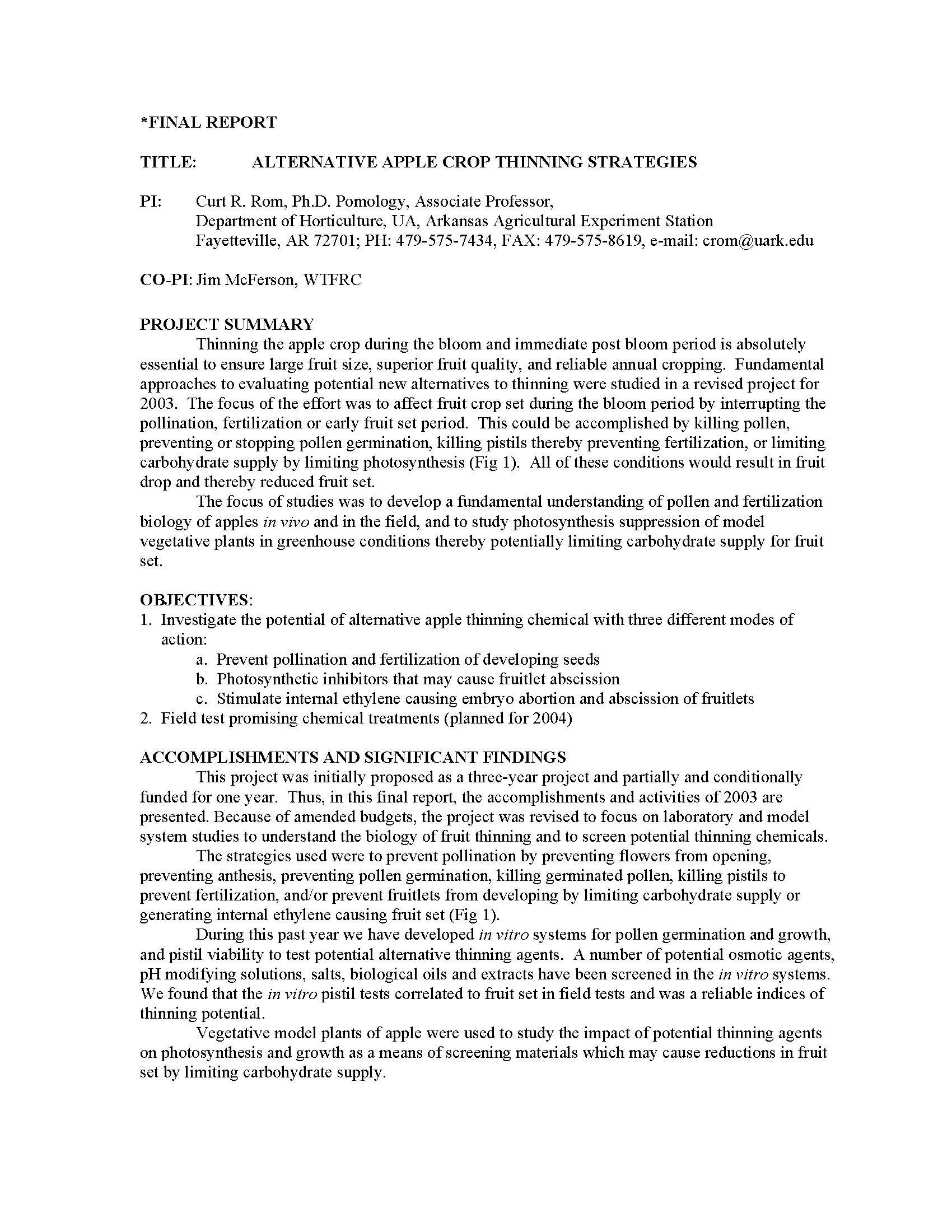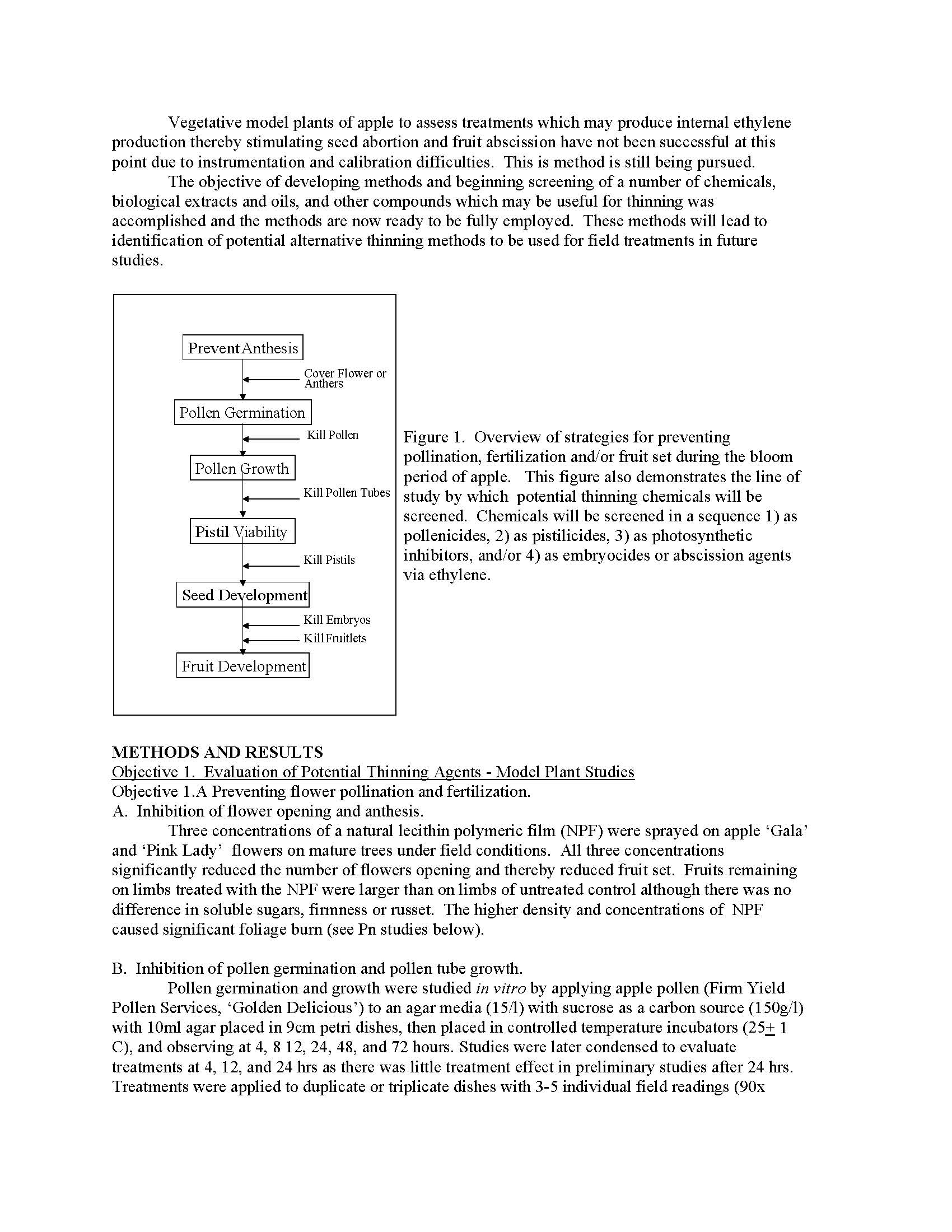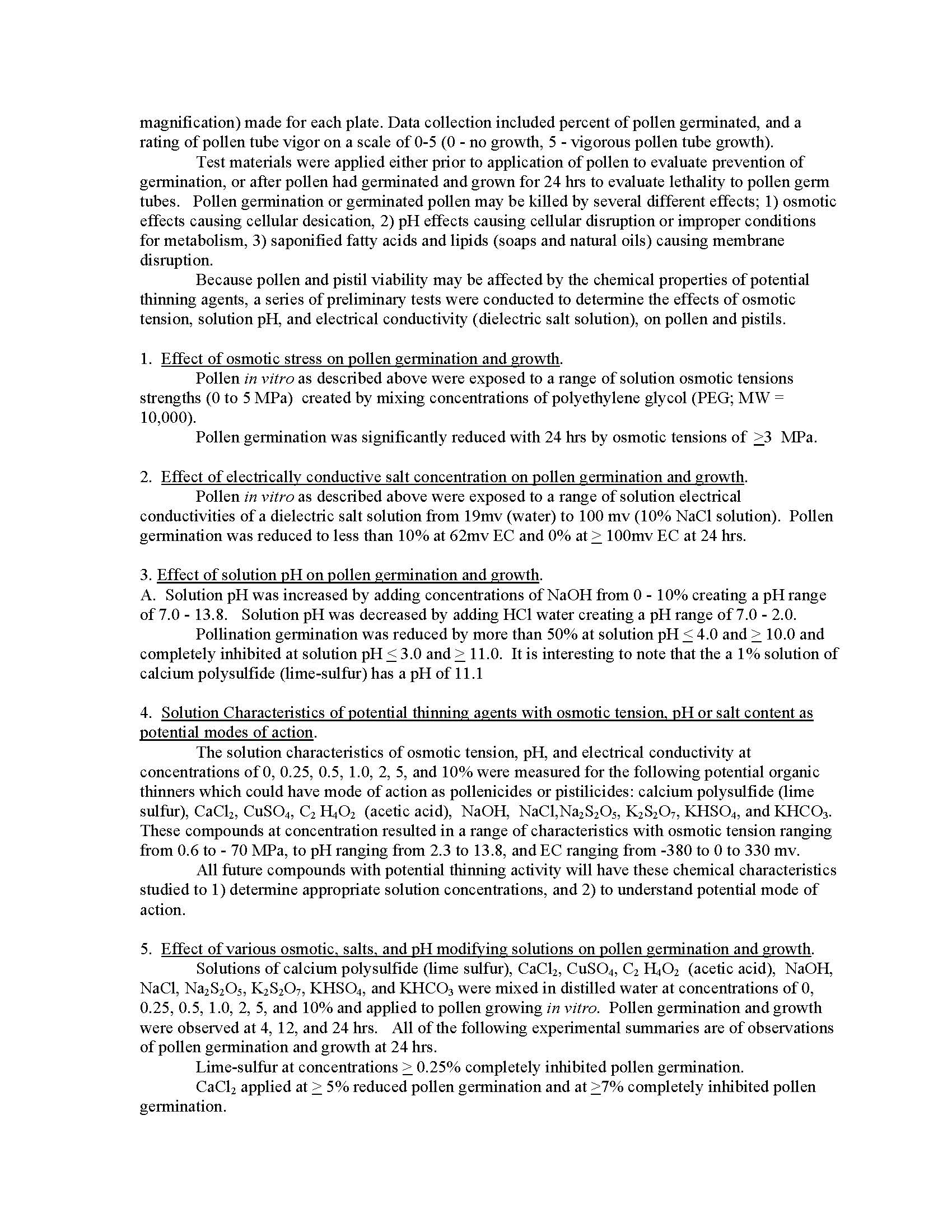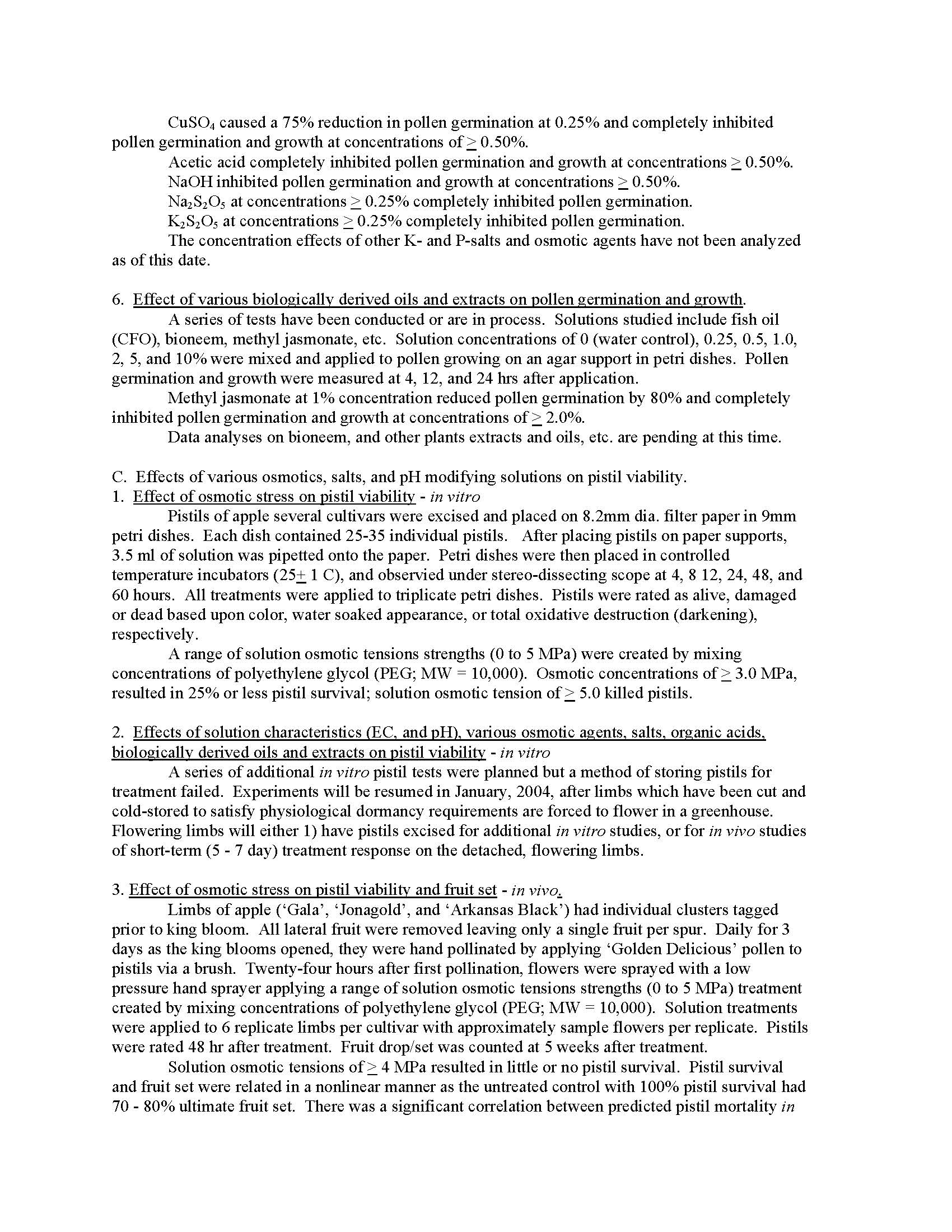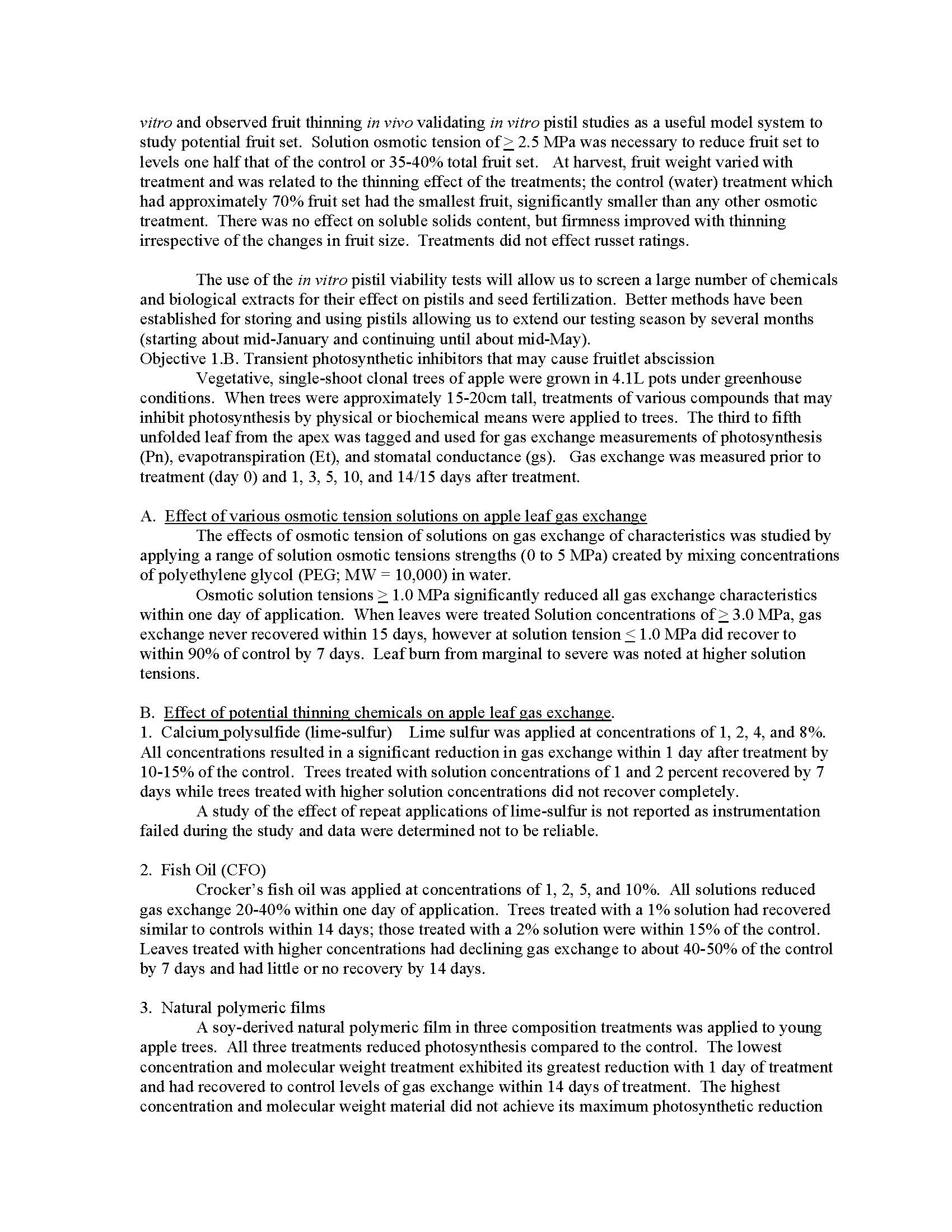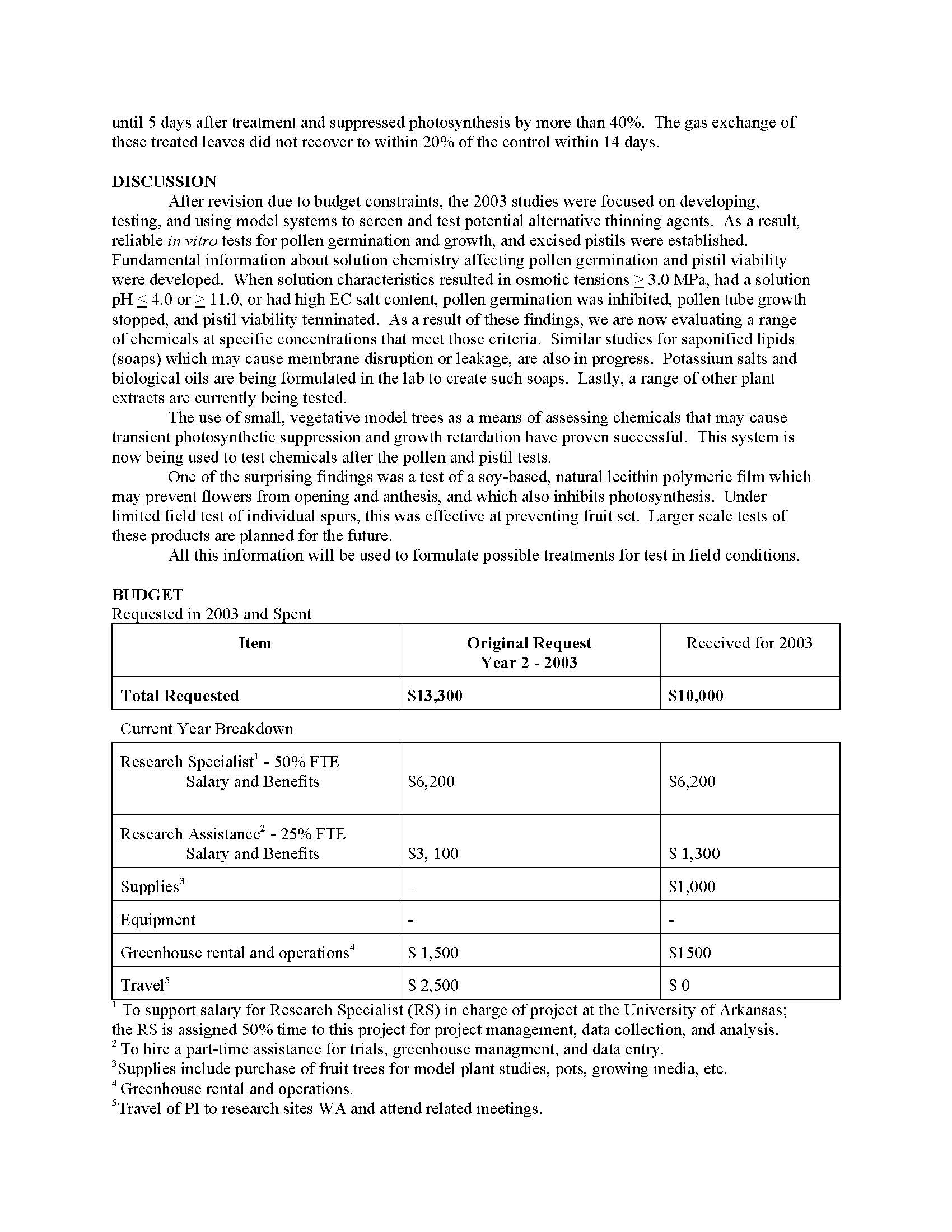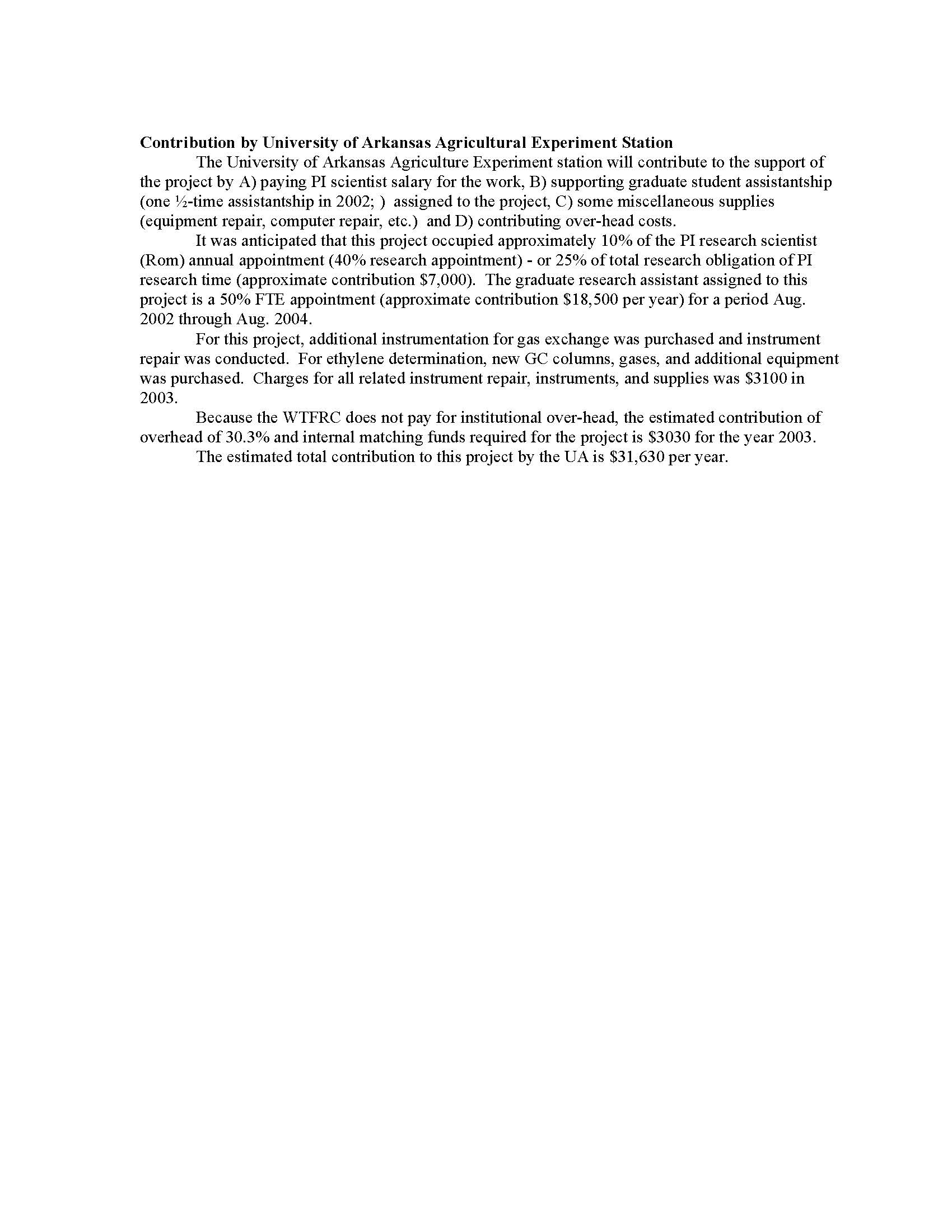Alternative Apple Crop Thinning Strategies
Author: Curt R. Rom, Jim McFerson
Published: 2003
Summary: Thinning the apple crop during the bloom and immediate post bloom period is absolutely essential to ensure large fruit size, superior fruit quality, and reliable annual cropping. Fundamental approaches to evaluating potential new alternatives to thinning were studied in a revised project for 2003. The focus of the effort was to affect fruit crop set during the bloom period by interrupting the pollination, fertilization or early fruit set period. This could be accomplished by killing pollen, preventing or stopping pollen germination, killing pistils thereby preventing fertilization, or limiting carbohydrate supply by limiting photosynthesis (Fig 1). All of these conditions would result in fruit drop and thereby reduced fruit set. The focus of studies was to develop a fundamental understanding of pollen and fertilization biology of apples in vivo and in the field, and to study photosynthesis suppression of model vegetative plants in greenhouse conditions thereby potentially limiting carbohydrate supply for fruit set.
Keywords:

